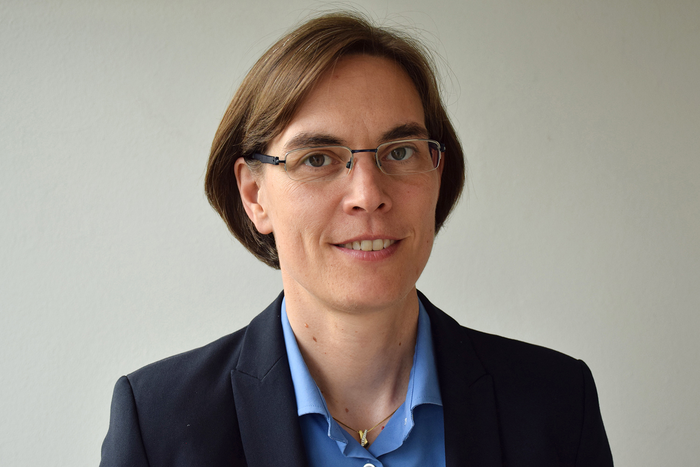It’s like a very big, early Christmas present that Würzburg chemist Claudia Höbartner can be happy about: The professor will receive one of the prestigious Gottfried Wilhelm Leibniz Prizes of the German Research Foundation (Deutsche Forschungsgemeinschaft, DFG), combined with prize money of 2.5 million euros. The DFG made the announcement today.

Credit: Institute of Organic Chemistry, University of Wuerzburg
It’s like a very big, early Christmas present that Würzburg chemist Claudia Höbartner can be happy about: The professor will receive one of the prestigious Gottfried Wilhelm Leibniz Prizes of the German Research Foundation (Deutsche Forschungsgemeinschaft, DFG), combined with prize money of 2.5 million euros. The DFG made the announcement today.
“This is a big surprise I would never have expected. I am very happy that our team’s research receives this prestigious recognition,” says the head of the Chair of Organic Chemistry I at Julius-Maximilians-Universität Würzburg (JMU) in Bavaria, Germany.
Research at the interface between chemistry and biology
With the Leibniz Prizes, the DFG aims to improve the working conditions of outstanding scientists. Claudia Höbartner (44) will invest the prize money in further research into the biomolecules DNA and RNA – she and her team are leaders in this field at the interface between chemistry and biology. Their work can provide insights that can be used, for example, to fight infectious diseases.
One example: Together with colleagues from the Max Planck Institute for Multidisciplinary Sciences in Göttingen, the JMU researcher deciphered how the antiviral agents Remdesivir and Molnupiravir interfere with the reproduction of the SARS-CoV-2 virus. This knowledge can also be valuable for the development of drugs against other viral pathogens.
Catalytic functions of nucleic acids
Claudia Höbartner’s research focuses on the catalytic functions of the nucleic acids DNA and RNA. The two biomolecules can not only store, transport and regulate genetic information. They are also able to mediate the course of biochemical reactions like enzymes. Such RNA enzymes are called ribozymes and can be found in the laboratory by artificial evolution.
The professor has made groundbreaking discoveries in this field. Höbartner and her team developed the first RNA enzyme that makes a very specific modification to another RNA molecule, and they recently also uncovered the chemical mechanism of this new reaction. In addition, together with colleagues from Göttingen, she clarified the spatial structure of a DNA enzyme down to the atomic detail for the first time. This work proved that DNA also folds into complex three-dimensional shapes in order to be catalytically active – just as protein enzymes do.
Successful research attracts young people
With such cutting-edge work, Claudia Höbartner has had a decisive influence on her field of research. She has found new approaches to specifically modify nucleic acids, and she has developed innovative methods to investigate enzymatically active DNA and RNA.
Her successful research attracts many young people to Würzburg: Höbartner’s group currently hosts scientists from eight nations. The professor has already published more than 80 papers in leading chemistry journals, but also in top interdisciplinary journals such as those of the Nature group. The Leibniz Prize money should give this success story an additional boost.
Career of the Leibniz Prize winner
Claudia Höbartner, born in 1977 in Krems in Austria, studied Technical Chemistry at the Vienna University of Technology. She completed her diploma thesis in Switzerland at ETH Zurich, after which she went to the University of Innsbruck to do her doctorate. In 2005 she moved to the University of Illinois in Urbana-Champaign (USA) as a postdoc.
Höbartner came to Germany in 2008: she took over the leadership of a research group at the Max Planck Institute for Biophysical Chemistry in Göttingen. She also worked as a chemistry professor at the university there for two years. From Göttingen, she moved to JMU in July 2017 as head of the Chair of Organic Chemistry I.




